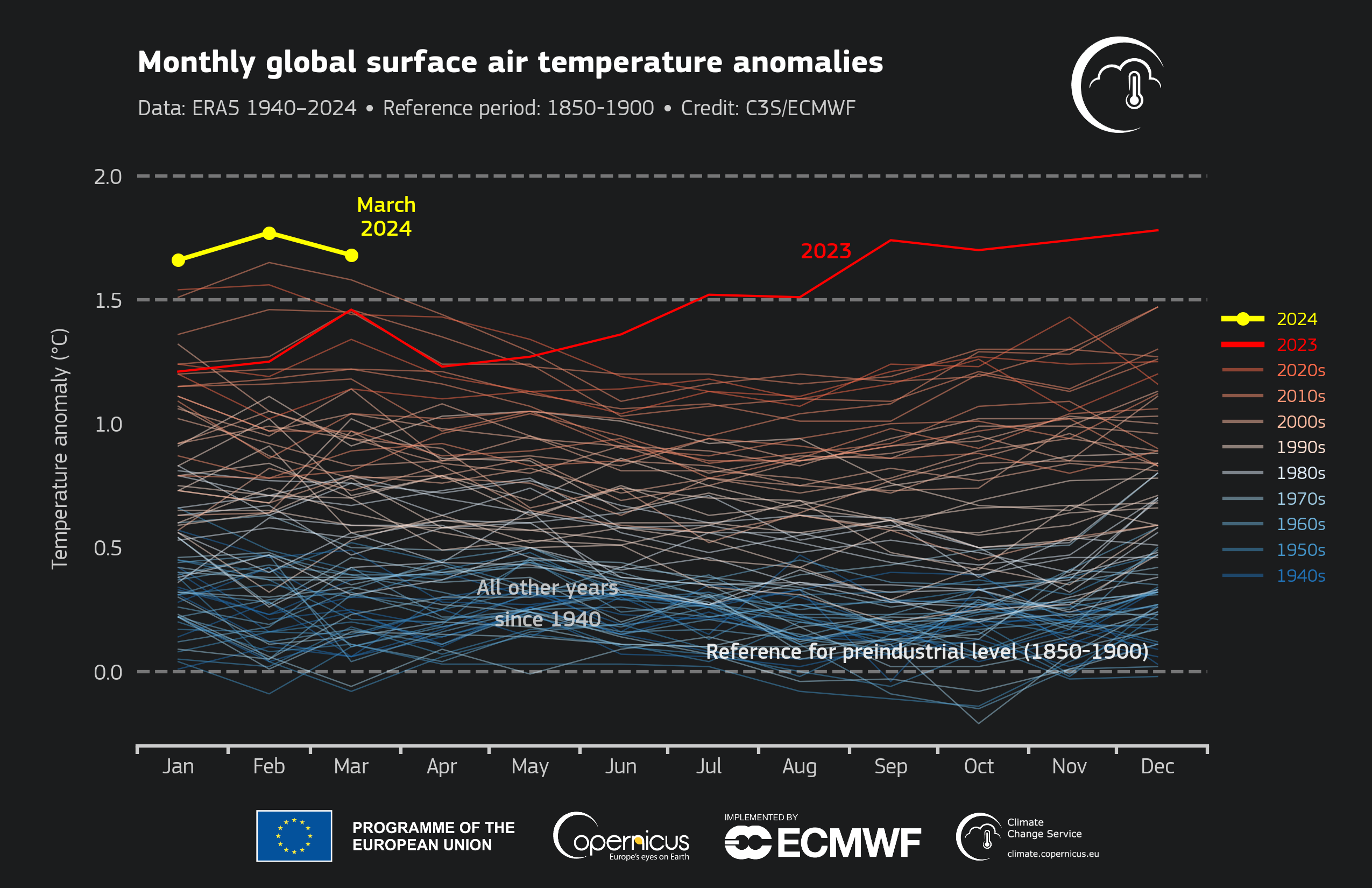Every month since April 2023 has broken its own temperature records — and March of this year only supported this disappointing statistic, reports is the European Union’s climate change monitoring service.
The average surface air temperature was 14.14°C in March, 0.1°C higher than the previous maximum set in March 2016 and 1.68°C higher than in the pre-industrial period.

Overall, from April 2023 to March 2024, the global average temperature was 1.58°C higher than the pre-industrial period of 1850-1900. The Paris Climate Agreement aims to limit the temperature rise to 1.5°C above the pre-industrial average.
«Looking at records like this — month after month — it’s clear that our climate is changing, and it’s changing fast», — says Samantha Burgess, deputy head of monitoring at C3S.
The 12-month period ending in March was also the hottest 12-month period on record — as well as the whole of 2023 (again, based only on the years in which observations were made).
Extreme weather and high temperatures have had negative consequences — particularly in South Africa, where drought has destroyed crops and left millions of people hungry. In Venezuela, a record number of forest fires were recorded in January-March.

The EU’s Climate Change Monitoring Service notes that the main cause of the extreme heat was greenhouse gas emissions caused by human activity — and they have only been exacerbated by the El Niño phenomenon, which heats up surface waters in the eastern Pacific.

Spelling error report
The following text will be sent to our editors: